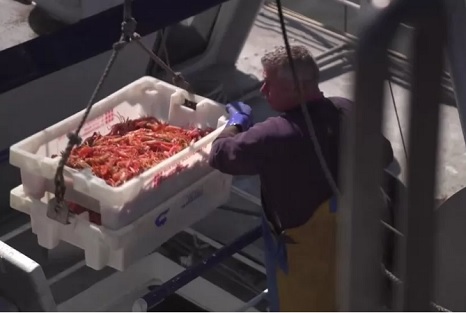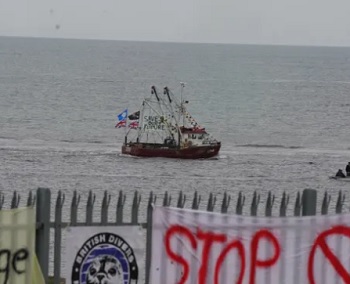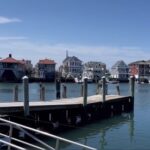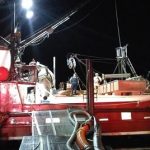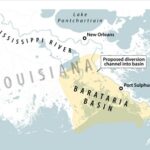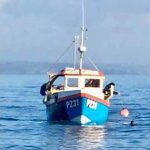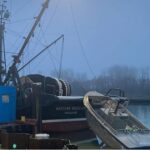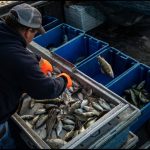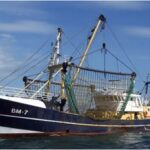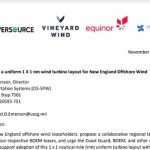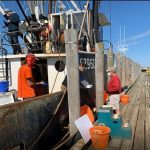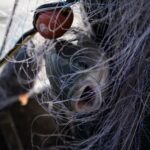Tag Archives: Teesside
Pyridine ‘unlikely’ to be cause of mass shellfish die-off on Teesside, new test finds
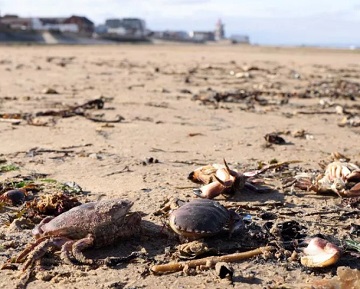 The latest investigation into the cause of mass creature die off along the North East coast has found an industrial chemical is unlikely to be the cause. The Government has today issued the findings of an investigation by the independent experts at the Centre for Environment, Fisheries and Aquaculture Science, who used a new method to test for the chemical, pyridine, in animal tissue and sediments. The original incident between October and December 2021 saw crustaceans washed ashore with dying creatures “twitching” and displaying lethargic behaviour right along the coast from Hartlepool down to Whitby. >>click to read<< 11:38
The latest investigation into the cause of mass creature die off along the North East coast has found an industrial chemical is unlikely to be the cause. The Government has today issued the findings of an investigation by the independent experts at the Centre for Environment, Fisheries and Aquaculture Science, who used a new method to test for the chemical, pyridine, in animal tissue and sediments. The original incident between October and December 2021 saw crustaceans washed ashore with dying creatures “twitching” and displaying lethargic behaviour right along the coast from Hartlepool down to Whitby. >>click to read<< 11:38
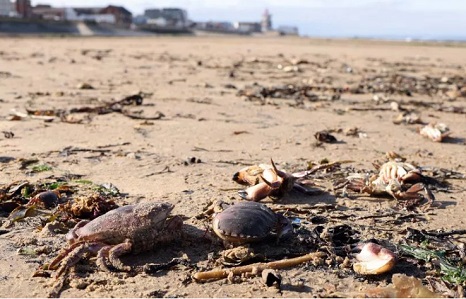
Fishing group’s list of over 100 reports of incidents and concerns since 2021 marine die-offs
Since October 2021, fishermen have been battling for the region’s ecosystem after swathes of dead crabs, lobsters, and shellfish washed up on beaches. Environmentalists and fishermen fought for answers – with the Department for Environment Food and Rural Affairs eventually launching a probe.While the initial Defra report said an algal bloom was the most likely cause, further investigations found that a “novel pathogen” was most likely to blame. Independent marine and university experts as well as the fishermen believed dredging on the Tees unearthed historical toxins leading to the mass die off – but this has also been ruled out by the authorities. Incident reports listed by the NEFC, and what a sad list it is, >click to read< 21:34
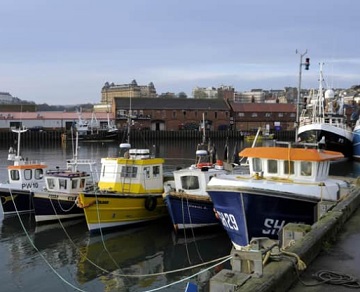
‘The job’s f****d’ – Fishers slam local MP for comments
The North East Fishing Collective (NEFC), which represents fishers from Hartlepool to Whitby, was established to support fishers along that stretch of coast after unexplained mass deaths of shellfish in the area in several events from September 2021 onwards left them without catches. Hartlepool MP, Jill Mortimer, last week shared a photo of her in a meeting with Environment Minister Mark Spencer in Parliament where she described how “prawners have experienced a temporary but significant reduction in their catches due to prawns burrowing into sands.” “The prawns and catches returned,” she wrote, however the NEFC has disputed this in no uncertain terms. >click to read< 14:57
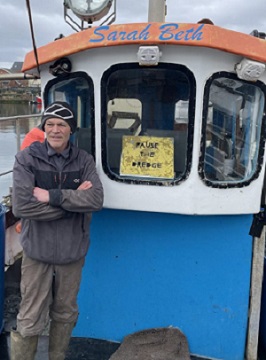
Lobstergate: The unintended consequences of Britain’s Freeports
In the distance is Bran Sands, a jut of land perched at the face of the estuary where the river meets the North Sea, and a dredger is passing by, moving tonnes of sediment from the River Tees to be disposed of some miles out. Fishermen Paul Widdowfield and Stan Rennie tell me this sight has become a daily occurrence. To them, it is a salty and unwelcome one. Neither Widdowfield or Rennie have gone out on their day boats for almost 18 months now. Both had fished out of Hartlepool for 40 years or more, catching brown and velvet crabs and highly prized lobsters. Today, in an area synonymous with fine shellfish, there is little or nothing left to land. The Teesside Freeport is, according to the government, the UK’s largest, “driving growth in renewables, advanced manufacturing and the chemicals and process sectors.” >click to read< 07:53
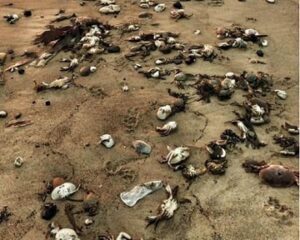
Scientists who investigated crab and lobster die off ‘surprised’ politicians have ‘questioned their integrity’
The 13-person panel of experts conducted a review of all the evidence gathered during a government-run investigation into the deaths of the crustaceans, which began washing ashore between Hartlepool and Whitby in October 2021. The panel said it was “unable to identify a clear and convincing single cause” but the “most likely” explanation is an unknown disease or parasite killed the crustaceans, after it was convened by the Department for Environment, Food and Rural Affairs’s (Defra) Chief Scientific Advisor Professor Gideon Henderson. The findings have been disputed in recent weeks by local fishermen and a number of Labour MPs, with Geraint Davies claiming it was “farcical” to suggest a “phantom pathogen” caused the deaths. >click to read< 09:05
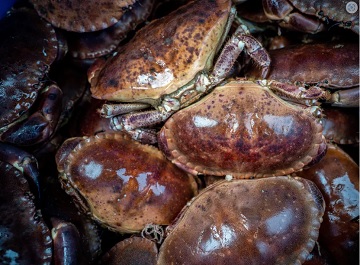
Labour slams government over ‘discredited theory’ for mysterious big crustacean die-off
Shadow environment secretary Jim McMahon has written to his opposite number in government, Therese Coffey, to criticise her department’s theory that algal bloom caused the deaths. Thousands of dead and dying crustaceans washed ashore along parts of the north-east coast of England between October and December 2021. On 17 January, a panel of independent experts convened by the Department for Environment Food and Rural Affairs (Defra) chief scientific officer Gideon Henderson concluded: “A novel pathogen is considered the most likely cause of mortality. However, the panel was “unable to identify a clear and convincing single cause for the unusual crustacean mortality”. >click to read< 12:10
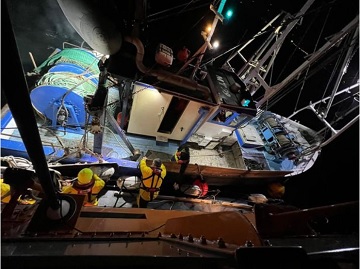
Bomb disposal team called after fishermen trawl wartime mine off coast
The bomb squad was called to Teesside after a fishing vessel trawled a wartime mine off the coast of Hartlepool. A two-person crew of the fishing boat had trawled the explosive device and were five miles off the coast of the town. The Royal Navy bomb disposal experts were called out to meet the 13m boat shortly after 10.40pm last night. The squad had travelled down from Scotland to carry out the operation but were unable to launch their own boat and the Hartlepool RNLI was called in to assist. >click to read< 11:30
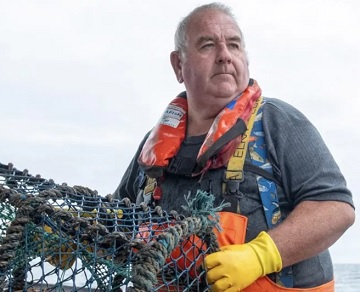
From the heart of a Hartlepool fisher – to EFRA
Dear EFRA COMMITTEE, MMO, local MPs, councillors and interested parties. Please log the ecosystem rock pool make up life change, with the many other die-offs that you haven’t given me feedback on, since the freeport dredge started in 1 September 2021, and the 145.000 tonnes of capital dredge from the toxic Seaton Channel, that you have allowed to be removed, irrespective of its chemical makeup, and dumped six miles out, in the last two weeks. I eagerly await the MMO answers, please copy the EFRA Committee in, and the feedback [as to] why these creatures are all that’s left in the ponds. >click to read< 07:46
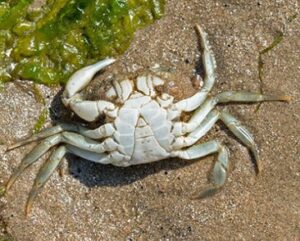
Defra accused of ‘remarkably poor scientific practice’ over crabs
University academics have criticised a government-commissioned report into mass crab die-offs on England’s north-east coast, with one accusing it of “remarkably poor scientific practice”, and they pledged to continue their research into the matter. The academics, from the universities of Newcastle, Durham and York, believe pollution caused crab and lobster deaths rather than a new pathogen, which a report from the environment department found to be the most likely cause of the deaths despite no direct evidence for such a disease. The report, and its criticisms, follow controversy over an unusually large number of dead or dying crabs and lobsters found along the north-east coast of England in the autumn and winter of 202. >click to read< 16:11
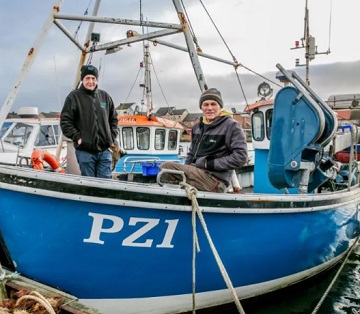
‘What about us?’
Forgotten fishermen caught in the middle of a storm over the North Sea crustacean deaths last night asked ‘what about us’, after a report into the wash-ups was published. Fishermen working off the Teesside coast have told how they’re struggling to make a living with depleted numbers of sea life following mass deaths. A fresh report into the deaths released at noon on Friday was unable to find a conclusive cause for the mass wash-ups. Hartlepool Fisherman Paul Graves said: “If my wife stopped working I would be screwed. “I used to go two miles out and would never go more than six, but now I have to go 20 miles out to have any chance of catching anything. >click to read< 10:28
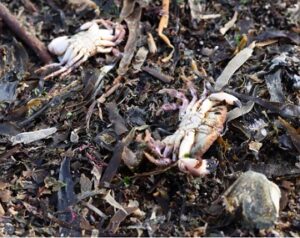
No definite answer to cause of mass crab deaths on north-east coast
Thousands of dead and dying crustaceans were found piled high along beaches along the north-east coast of England during a three month period. Research by academics, backed by the fishing industry, suggested the incident could have been caused by industrial pollutant pyridine, possibly from dredging in the mouth of the River Tees to maintain channels for port traffic. However this has now been deemed “exceptionally unlikely”. And while the panel said it was impossible to give a definitive answer using current data, it concluded on Friday that it was “about as likely as not” that a pathogen new to UK waters – a potential disease or parasite – caused the crab deaths. >click to read< 09:52
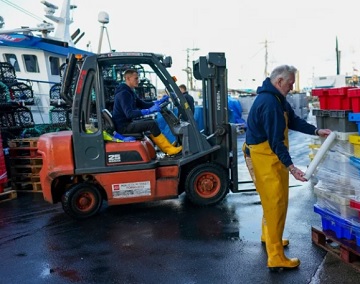
Is the freeport to blame for loss of marine life in Teesside?
The deaths of thousands of crabs on the beaches of Teesside and North Yorkshire has created bitter divisions between the fishing industry and the government. With so much disagreement over the cause, the issue has “set off a row that shows little sign of dying off”, In October 2021, crabs and lobsters began washing up dead on the beaches in the region. The beaches were “piled with hundreds of thousands of dead and dying crabs and lobster” With their catches plummeting, the fishing industry has called for financial support from the government to “save” the North East fleet in the face of the huge losses. >click to read< 11:00
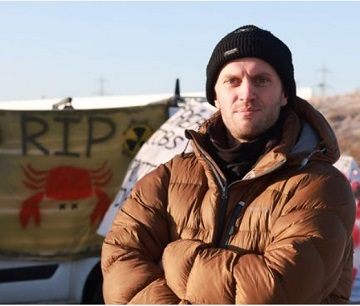
Angry fishermen stage protest at Tees dredging plans including one who’s lost all his crew
Fishermen from Hartlepool, Redcar and Whitby who have seen their livelihoods “decimated” by the shellfish die-offs along the North-east coast joined the rally. Fishermen fear chemicals released by dredging work to develop the Teesside freeport are to blame for the die-offs. Joe Redfern, a fisherman and founder of Whitby’s lobster hatchery, said: “The freeport is a massive government agenda. We are all for the jobs and regeneration and want to see this part of the world flourish and prosper. “But if you are going to do a big dredging operation in the most toxic river in the whole country, take the sediment to landfill. Don’t dump it in the sea. >click to read< 13:06
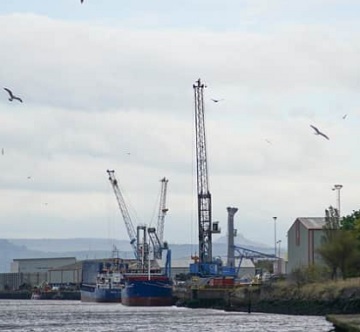
Questions over Teesside Freeport’s role when it comes to washed up fish – Andy Brown
A new deep water port is being created to service the offshore wind industry and new facilities are being established to build the turbines. In theory a bustling freeport will usher in a new age of industrial prosperity for a long-neglected part of the north with pesky regulations being swept away so that they don’t delay progress. There is, of course, much to be admired about the project. Unfortunately rushing to build without worrying too much about the consequences for others can also bring big problems. In this case those downsides are having a huge impact on the livelihoods of Yorkshire fishing communities and on the health of a huge area of our coastline. >click to read< 11:26
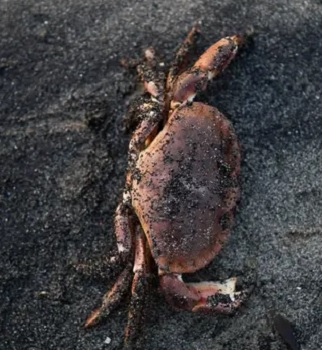
Panel to investigate crab and lobster deaths on north-east coast of England
The UK government is to set up an independent expert panel to investigate the cause of the mass die-offs of crabs and lobsters on the north-east coast of England, it has announced. The panel will consider the impact of dredging around a freeport development in Teesside and the presence of pyridine, a chemical pollutant, among other potential causes, the Department for Environment, Food and Rural Affairs (Defra) said. Mark Spencer, the fisheries minister, said on Tuesday: “I recognise fishing communities in the north-east want as thorough an assessment as possible into the crab and lobster deaths last year. >click to read< 07:35
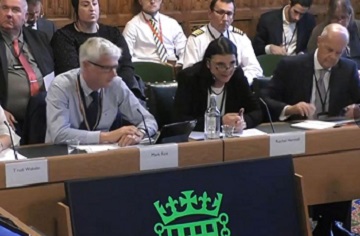
Experts quizzed over freeport, dredging and algal blooms as crab deaths on coast investigated
The deaths of thousands of sea creatures washed up on Teesside’s beaches are to be investigated in the House of Commons on Tuesday. Teesport operator PD Ports, the Environment Agency, a Whitby fishing association and academics will give evidence to MPs about the mass sea deaths. The Environment, Food and Rural Affairs select committee will hear from witnesses about the crustacean deaths after committee chair Conservative Sir Robert Goodwill, MP for Scarborough and Whitby, branded the situation “disturbing”. A Defra investigation earlier this year concluded the cause of the crab deaths to be a naturally occurring algal bloom but campaigners believe dredging has unearthed historical toxins – including a chemical called pyridine – which has caused the deaths. >click to read< 12:15
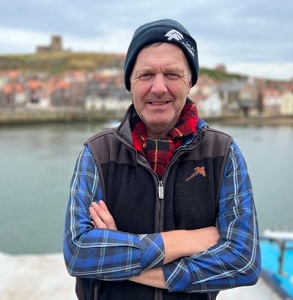
BBC documentary examines mass crab die off on Teesside coast and what has happened since
A TV documentary examining the impact of the mass crab and lobster die off on the Teesside coast is set to air. We Are England: Trouble at Sea looks at the events of last October and what has happened since. In it, film makers speak to fishermen, conservationists, the Tees port authority PD Ports and scientists to document the effects of the worrying occurrence, the subsequent investigation and the theories on its cause that have been an ongoing source of dispute. Teessiders will know huge piles of crabs, lobsters and shellfish began to wash up on beaches around the Redcar and Markse areas as well as Hartlepool a year ago before washing down the coast as far as Whitby. They were seen in piles that were waist deep in some places and most were dead or dying.>click to read< 21:32
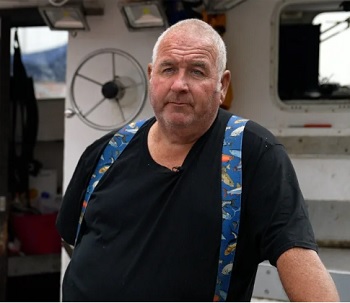
Impact of mass crab die-off ‘not as severe as feared’ but report criticised by fisherman
A monitoring report into the state of shellfish stocks along the Teesside coast following the mass crab and lobster die off has concluded the impact ‘was not as severe as originally feared.’ But a fisherman who works off the Hartlepool coast has hit out at the findings and claims it does not paint a true picture. However, Stan Rennie, who fishes from Hartlepool, has criticised the report. He says it includes the catches of all of the visiting super crabbers which work thousands of pots, and he says, it doesn’t take into account the fact that fishermen are going further afield to get out of the die-off areas. >click to read< 14:48
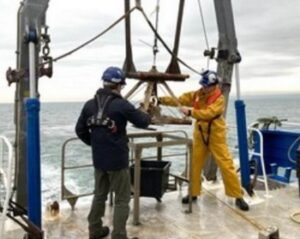
Deaths, accusations and a search for truth: The Teesside seaside die-off and where we are now
It is an issue that has caused a huge amount of concern right the way across Teesside and down into North Yorkshire. And it is simply not going away. Last October, residents living in the Marske area began to notice huge piles of dead and dying crabs, lobsters and shellfish washing up on the beach between the seaside town and neighbouring Saltburn – in places, the piles were waist deep. Fishing livelihoods have been decimated, protests have been mounted and the campaign for a re-investigation continues. Here’s what has happened so far as the issue continues to prove contentious. >click to read< 07:58
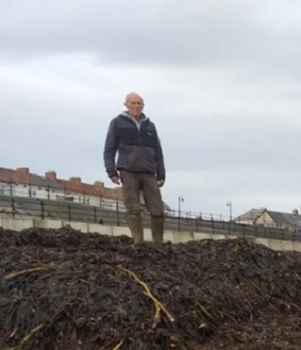
Killing joke: how Defra dismissed the Tees Bay die-off
It seems that no matter how often Defra and its partner agencies are exposed as inept over their handling of this crisis, their response is simply to deny the truth and carry on. The grim response of the Environment Agency (EA) to the mass crustacean die-off in Tees Bay moved up a gear last week. Where once they only patronised the inshore fishermen about the probable cause, they have now shown themselves prepared to do it on national TV. Friday 30 September Channel 4 News featured the ongoing tragedy and, in the process, interviewed Hartlepool fisher, Stan Rennie. Video link, >click to read< For more about this, >click here< 07:52
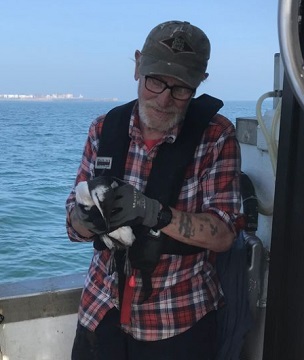
Yorkshire fisherman says his livelihood is being ‘devastated’ by mass deaths
James Cole, Chair of Whitby Commercial Fishing Association, has been talking about the serious impact the crisis has had on the fishing industry. He said: “It has had a devastating effect on the turnover of shellfish from Whitby and Hartlepool as well.” One particular feature of the crisis has been the lack of brown crabs which have been “absolutely devastated” in number. Velvet Crabs, which Mr Cole says are a food source for many animals which live close to the shore have been “more or less wiped out on the shore grounds”. The government has said the mass deaths were caused by a “naturally occurring harmful algal bloom”,,, >click to read< 10:35
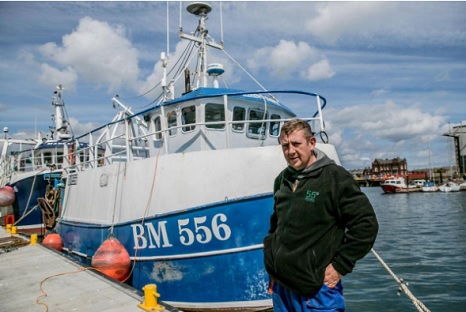
Fishermen launch legal action over North East crustation deaths
Fishermen along the North East coast have told of taking up new jobs amid a fishing crisis which has threatened their livelihoods and seen dead crustaceans wash up along the shoreline. Paul Graves, a lifelong fisherman off the Teesside and North Yorkshire coast, has taken up extra jobs over the summer to earn a living while his fishing boat is tied up in Hartlepool Mr Graves, like many other fishermen in the area, have grown frustrated by a marine life crisis which has seen hundreds of dead crustaceans wash ashore along the coast. For Paul, he’s contemplated selling his boat, owned by his family for years, due to the uncertain future. “I tied the boat up and went and did seven weeks work for a cable company,” he said. photos, >click to read< 15:49
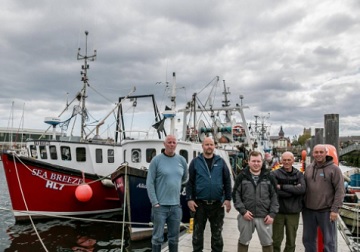
‘On its knees’ – Public meeting to look at how to support Hartlepool’s fishing industry
Councillors unanimously backed the move at the latest Hartlepool full council meeting, pledging to do all they can to support the sector after the mass deaths of crabs and lobsters in the area. The motion was raised by Labour’s Cllr Rachel Creevy, who highlighted how the region’s fishing industry has been decimated since the issue first occurred in autumn 2021. A Hartlepool fisherman invited to speak at the meeting said the industry is “part of their heritage” and their “lifetime’s work”. But they are now “desperate” with the “ecosystem wiped out”. >click to read< 10:55
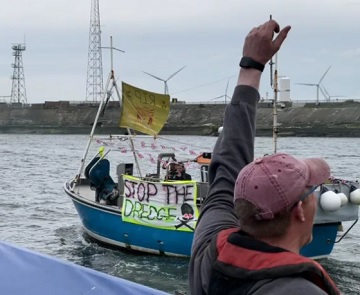
Government accused of ‘cover up’ over Teesside mass crab deaths
But Defra has insisted joint investigations into the deaths were thorough. Unrest, debate and protests over huge piles of dead crustaceans on Teesside’s coastline have rumbled on since problems first started last autumn at Seaton Carew, South Gare, Redcar, Marske and Saltburn. An algal bloom was deemed to be the likely culprit by a Defra-led study. But this was countered by an independent report by Tim Deere-Jones after he was commissioned by those concerned in the fishing industry. High levels of a chemical pyridine were noted by Mr Deere-Jones’s report. Mr Deere-Jones’ report also said algal blooms did not occur naturally in our coastal waters in October because the temperatures were too low. >click to read< 10:35
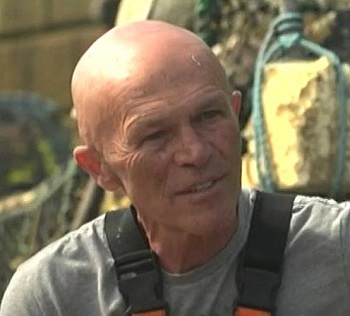
Hartlepool fishermen fear for future after crab deaths
Mass wash-ups were first reported in October with the government saying a natural algal bloom was to blame. Campaigners and fishermen disputed that and instead cited the dumping of dredged materials from the River Tees, which was “ruled out” by officials. Fisherman Paul Widdowfield, from Hartlepool, said he had caught “nothing at all” since October. Crab fisherman Stan Rennie said his family had fished the waters off Hartlepool for hundreds of years but he feared that would be “lost” with him. “We don’t know how the eco-system can come back,” Mr Rennie said. >click to read< 9:34
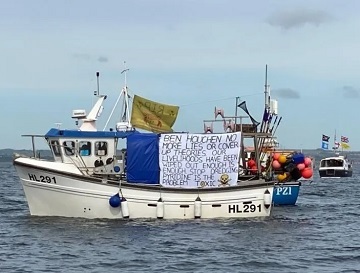
Troubled waters: the forces behind the death of the Tees
The Tees Estuary is dying. Its demise the result of widespread contamination on the one hand, and a wilful mishandling of information on the other. There was mass crustacean die-off in September/October 2021, and there has been a resurgence of this in recent weeks. We have also received numerous reports of deaths of seal pups as well as porpoise. Those seal pups that have survived are seriously underweight. Dead crab and lobster have been washing up on beaches again. Razor clams that inhabit the shallow waters of estuary beaches are also reported to be affected. And the official response to these sobering facts currently appears to be a mixture of indifference, belligerence and denial. >click to read< 08:11

Fishermen from across North East and Yorkshire in boat protest over mass shellfish deaths
Fishermen have held a protest on Teesside over the ongoing deaths of crabs and lobsters which they say is decimating their industry. Government scientists say natural algae in the water is responsible, but protestors want proof that recent dredging in the North Sea has not also had an impact in creating what they are calling a “dead zone”. Thirty fishing boats from Whitby, Redcar and Hartlepool sailed to South Gare to meet protestors on land to demonstrate about the continuing crisis. >click to read< 08:59

Mysterious killer continues to wipe out North East sea life
Fishing has long been a key part of Teesside’s proud heritage, but locals fear their livelihoods could be wiped out due to a devastating destruction of sea life. “There’s something going into their system that’s killing them and it’s going up and down the coast and nobody is answering our questions,” says lifelong fisherman Paul Graves. “We’ve done this all our life; we know what’s happening and we know when it’s not right.” >click to read< 09:32






